Civil Liberties, Criminalizing Dissent, Human Rights, Iraq War, Supreme Court, Truth to Power
Podcast: Play in new window | Download
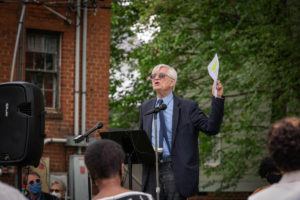
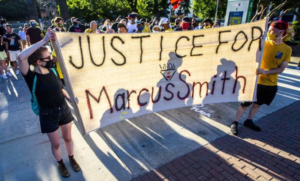
Attorney Flint Taylor Update On The Marcus Smith Case In Greensboro, NC
Police in America kill more than 1500 citizens a year. That’s more than three a day and they’re disproportionately Black. Police killed more than 1500 people the year before the murder of George Floyd and in the year since his murder they’ve killed another 1500.
The latest outrageous case has come to the national fore in Greensboro, North Carolina where eight white cops killed Marcus Smith two years ago by hogtying him causing him to suffocate to death . Now they are being sued and they’re trying to cover it up and trying to silence the Smith family’s attorney Flint Taylor, drive him out of the state, and sanction him with heavy financial penalties.
So instead of banning hogtying, settling the case with the Smith family and issuing an apology, they are trying to silence the messenger.
Hogtying can be lethal. It’s done by handcuffing the victim behind his back, shackling his feet, and then tying the handcuffs to the feet bending him over backwards, chest first, in the street. Marcus Smith’s died of asphyxiation within a minute.
On September 8, 2018 Marcus Smith was suffering from a mental health crisis. He was brutally hogtied by the Greensboro North Carolina police officers. The family’s civil rights case is being litigated by Chicago Peoples Law Office attorneys Flint Taylor and Ben Elson, and by Greensboro lawyer Graham Holt. It is worthy of national attention.
The cops’ lawyers have been paid more than $1 million of taxpayer money to date to defend the case. They have escalated their attacks on the Smith family and are seeking to suppress all the damaging evidence that has come to light during the pretrial discovery in the case.
Guest – Flint Taylor of the Peoples Law Office. Taylor is a nationally recognized civil rights attorney. He represented the family of Fred Hampton demonstrating that the Chicago Police Department and the FBI were responsible for the assassination of the young Black Panther leader. He’s written the book “The Killing Machine: Racism and Police Violence in Chicago”. He is one of the editors of the “Police Misconduct Law Reporter.
His recent publication The Torture Machine: Racism And Police Violence In Chicago.
—-

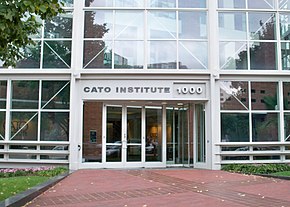
Phyllis Bennis: The Influence Of Think Tanks And IPS
With the growth of globalization on the heels of the Cold War, entities called Think Tanks grew rapidly during the late 1980s. Now, there are nearly 2,000 think tanks in the United States alone. Not surprisingly, more than 400 are located in the nation’s capital, with ready access to key policymakers. These entities play an outsized role in shaping the world we live in.
From national defense and technology, to social policy and economics, think tanks perform in-depth research on a range of topics. Some think tanks advocate for change by using this research and analytical reports to influence public opinion and help decision makers create policy agendas. It follows that many think tanks align along party lines. Funding for think tanks usually comes from endowments, government contracts, private donations, and sales of their reports.
While many think tanks are nonprofit organizations, some especially high-profile ideological ones advocate solutions that benefit their corporate donors. Often they are criticized for crossing the line between research and lobbying. Think tanks are classified according to their sources of funding and intended customers. Some think tanks, such as the Rand Corporation, receive direct government assistance; most others are funded by private individuals or corporate donors.
Guest – Phyllis Bennis is a fellow of the Institute for Policy Studies, where she is she is the director of the New Internationalism Project and works on anti-war, US foreign policy and Palestinian rights issues. She has worked as an informal adviser to several key UN officials on Palestinian issues. Her books including Calling the Shots: How Washington Dominates Today’s UN, and Understanding the Palestinian-Israeli Conflict.

———————————-
Civil Liberties, Gaza, Human Rights, Targeting Muslims, Torture, Truth to Power, War Resister
Podcast: Play in new window | Download
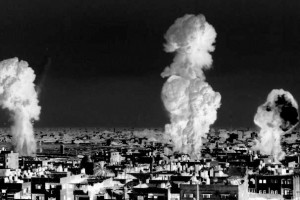

Palestine Legal Director Speaks On Recent Israel-Palestine Conflict
Zionism, the idea of creating a Jewish homeland in Palestine, was and is a settler colonial project that started 100 years ago. But Zionism had a problem. It’s illustrated by the story of an early Zionist Congress in Vienna sending three rabbis to Palestine to report on what they saw. The rabbis went and reported back that “the bride is beautiful but she’s married to another man.” Palestine was densely populated and had been for thousands of years. It was not, as Zionist propaganda would have it, a land without a people for a people without a land.
The Zionist goal then and now was to get rid of the Arabs. In this they have almost succeeded. But not quite.
The recent 11 day horrific slaughter of Palestinians in Gaza, approved in advance by the Biden administration and conducted by Israel with American supplied weapons started when Israel Prime Minister Benjamin Netanyahu in an effort to consolidate right wing support evicted Palestinians from their homes in a Palestinian neighborhood in Jerusalem. The Prime Minister also had his military invade and shoot up the Al-Asqua mosque in Jerusalem while 300 Palestinians were there praying on the last day of Ramadan. In response on May 18th the Palestinians staged a general strike in Israel proper, the West Bank, and Gaza. This was the first time a general strike had been conducted by the Palestinians against their Zionist and British oppressors since 1936 which which was broken by the British and the Zionists.
The Zionist apparatus in the United States is extremely strong. Through lawsuits and political pressure they have carved out what Michael Ratner called – the Palestine exception to the First Amendment. Telling the Palestine story is quite difficult. To counter this Michael Ratner set up the organization Palestine Legal in Chicago. It is headed by Palestinian American attorney Dima Khalidi. Before the cease-fire, 1700 people in Gaza were injured and 210 killed, including 65 children.
Guest – Dima Khalidi, founder and Director of Palestine Legal. Her work includes providing legal advice to activists, engaging in advocacy to protect their rights to speak out for Palestinian rights, and educating activists and the public about the repression of Palestine advocates. She most recently has an article published online in Truthout.
—-
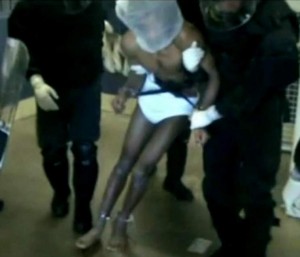
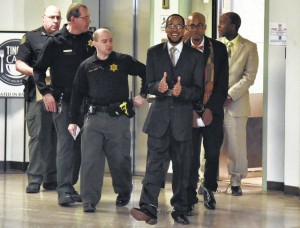
The Dallas 6: Andre Jacobs
In 2014 and 2016, Law and Disorder covered the case of the Dallas 6. They’re a group of prisoners who in 2010 protested the ongoing abuse from prison guards while locked in solitary confinement at the SCI Dallas prison in Pennsylvania. Abuse there included tasering genitals, being hog tied, cutting off of clothes and leaving the men in cages for hours at a time.
They witnessed another prisoner, Isaac Sanchez, being strapped into a restraint chair for hours even overnight. When guards threatened to do the same to them, the men tried to cover their cell doors with their bedding and refused to leave their cell in an effort to protect themselves and gain the attention of authorities. Prison guards stormed the six cells, armed with batons and electrified equipment. They left the men beaten, bloody, naked, eyes burning, their flesh scorched with pepper spray.
The Dallas 6 are Andre Jacobs, Anthony Kelly, Anthony Locke, Dwayne Peters, Derek Stanley, and Carrington Keys. The six men were forced to remain in the Restrictive Housing Unit, or solitary confinement for up to ten years.
Guest – Andre Jacobs, Andre served more than two decades in prison, was the victim of prolonged and tortuous prison guard abuse, became a successful jailhouse lawyer, and has been released from prison. He started the business Supreme Network Global to help and guide young men and women who have been in similar circumstances.
—————-
Civil Liberties, Gaza, Human Rights, Political Prisoner, Prison Industry, Truth to Power, War Resister
Podcast: Play in new window | Download
- Commentary: Jim Lafferty On Israeli – Palestinian Conflict
—-
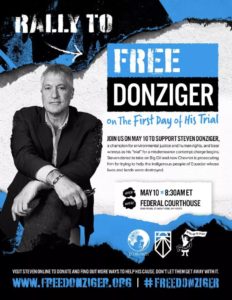
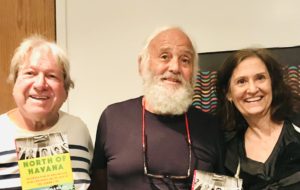
Steven Donziger Trial: Continuing Coverage Part 2
After five days in court and 650 days on house arrest, environmental lawyer Steven Donziger chose not to take the stand and testify in his own defense. As listeners will recall, Steven was on trial for criminal contempt of court charges. In August 2019, he refused to turn over his computer, cellphone and other electronic devices and he has been detained pretrial for a misdemeanor offense. If convicted, he faces six months in prison.
The attorney who won a multi-billion-dollar settlement against Chevron oil for polluting an area Ecuador the size of Rhode Island and causing the indigenous people thousands of injuries and deaths by cancer and other illnesses, told The Intercept about the decision: “My lawyers said you’d be crazy to testify, so we decided to cut the case short. No need to continue to legitimize what’s essentially a charade.”
Judge Loretta Preska denied Steven a trial by jury, and many contend that a jury of his own peers might have acquitted the human rights defender of all six counts. Attorney and Harvard Law School professor Charles Nesson agrees. “This is a story of the denial of jury trial,” Nesson said. “He’s been effectively convicted and disbarred and more or less bankrupted without any jury. And now he’s about to be convicted. And all of this without a jury.”
DonzigerDefense.com
ChevronToxico.com
ChevronInEcuador.com
Guest – Attorney Martin Garbus, one of three pro bono lawyers representing Donziger in an attempt to get his law license restored. Garbus has a long and distinguished career as a civil rights and first amendment litigator. Attorney Martin Garbus has represented Nelson Mandela, Daniel Ellsberg, and Cesar Chavez and worked in Rwanda, China, and the Soviet Union, among other countries.
—-
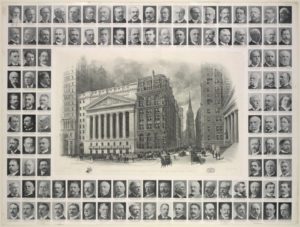
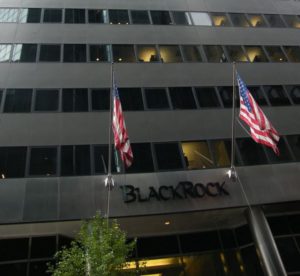
Take Me To Your Leader: The Rot of the American Ruling Class
We need to know our enemy because the task of changing society begins with understanding who holds power. In 1915 the great Irish socialist James Connolly said, “O, yes! The ruling class are worthy of study. The natural history of the ruling class is a fascinating interest. You begin with interest, you proceed with awe and admiration, you deepen into hatred, and you wind up with contempt for the nature of the beast. You realize that – the capitalist class is the meanest class that ever grasped the reins of power”. Jacobin magazine’s Spring 2021 issue is devoted entirely to an examination of the ruling class.
Guest – Doug Henwood who has an article in Jacobin titled Take Me To Your Leader: The Rot of the American Ruling Class. Doug Henwood is the editor of Left Business Review and the host of the radio program Behind the News.
————————————————

Civil Liberties, Human Rights, Political Prisoner, Supreme Court, Surveillance, Truth to Power
Podcast: Play in new window | Download

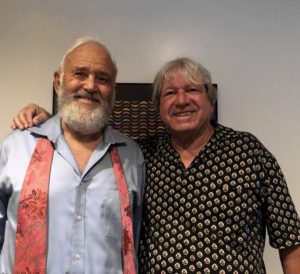
Steven Donziger Trial: Continued Coverage
As we continue our coverage of human rights lawyer Steve Donziger’s criminal contempt trial, we look back to the origins of case he brought against Chevron Oil. They go back to the late 1960s when Texaco first discovered oil in part of an Amazon rainforest in northeastern Ecuador. The US oil company went on to lord over decades of environmental destruction on a monolithic scale, dumping two or three Exxon Valdez’s worth of oil and toxic byproducts and despoiling an area the size of Rhode Island. Since then, the indigenous tribes in the area have been victims of by cancer and other illnesses caused by the pollution, they say. In 1993, two years after graduating from Harvard Law School, Donziger joined a lawsuit seeking to force Texaco to clean up the mess. In 2000 Chevron purchased Texaco. They spent upward of $1 billion in legal fees defending this case.
Donziger has broad support from celebrities, including Alec Baldwin and Susan Sarandon; dozens of Nobel laureates; and thousands of lawyers and law students globally. A handful of sympathetic Democratic lawmakers, including U.S. Rep. Alexandria Ocasio-Cortez, have written a letter to U.S. Attorney General Merrick Garland, asking him to look into the case. More than 200 attorneys with the International Association of Democratic Lawyers have filed a judicial complaint asking for Judge Kaplan to be taken off the bench.
Conversely, Chevron claims Donziger’s supporters are being duped by a con man. A few conservative outlets have reiterated that narrative. One National Review headline criticized the “Lefty Media” for championing the cause of “History’s Champion Scammer.”
DonzigerDefense.com
ChevronToxico.com
ChevronInEcuador.com
Guest – Attorney Martin Garbus, one of three pro bono lawyers representing Donziger in an attempt to get his law license restored. Garbus has a long and distinguished career as a civil rights and first amendment litigator.
—-
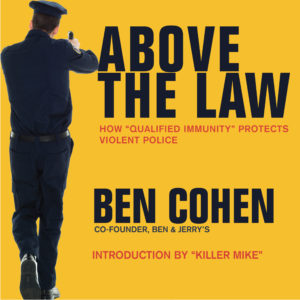
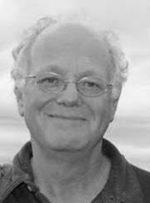
Above The Law: How Qualified Immunity Protects Violent Police
The 1967 judicially created doctrine of qualified immunity has been so broadly interpreted that it acts as a shield for policeman in all but the rarest of circumstances. Only when the exact same abusive behavior of a cop has already been deemed unconstitutional by a court in the exact same jurisdiction can a victim succeed in a civil lawsuit against an abusive police officer. A plantiff must show that government officials violated clearly established law to receive damages for harm.
The plaintiff wins only if a prior court found an official liable under a nearly identical fact pattern. This standard is virtually impossible to meet and the protections promised under section 1983 civil rights act are therefore largely symbolic.
Guest – Ben Cohen – cofounder and former CEO of Ben & Jerry’s Ice Cream. He is the founder of a variety of advocacy organizations and the author of several books including his latest titled Above The Law: How Qualified Immunity Protects Violent Police. Ben and his partner Jerry Greenfield are currently helping to lead the campaign to end qualified immunity.
—-


USPS Announces Closing Of 19 Mail Processing Plants
The US Postal Service advertises the official standard of delivering first-class mail — a typical letter with a 55-cent stamp—within “1-3 business days.” The News Department at WGBH Radio in Boston conducted its own test to see if this still holds true. News reporters and producers sent nearly 100 letters from different places in the metro area at various hours on the same day to their pick of correspondents in 38 states, creating a random sample. The letters were addressed to residents of large cities, suburbs and small towns. The Postal Service flunked the test. A little more than half of the letters arrived within the three-day window.
Slower delivery is just the tip of the Post Office’s problems. Things are going from bad to worse. The Postal Service issued a report titled Delivering for America calling for a reorganization that highlights something called shared sacrifice.
Many consider it an austerity plan to cover for de facto privatization. Critics say the plan will slow the mail, raise prices, and cut services. Since the report was published, the Postal Service announced the closing of 18 mail processing plants that will take place before November. Based on recent history, closing these plants will slow the mail and guarantee there will be problems with mail delivery during the peak season.
Guest – Chuck Zlatkin, legislative director of the New York Metro Area Postal Union.
—————————-
CIA Sponsored Terror, Civil Liberties, Criminalizing Dissent, Human Rights, Truth to Power
Podcast: Play in new window | Download
- Attorney Jim Lafferty Commentary on Solitary Confinement
—-


Steven Donziger Trial Set To Begin This Week
Sixty-year-old environmental lawyer Steven Donziger has been under house arrest without trial for the last 25 months on charges that normally have a max sentence of six months. To date this is the longest sentence imposed in New York on an attorney convicted of contempt. The contempt charges are from Donziger’s refusal to give his cellphone and computer to the court. We’ve been covering Chevron’s retaliation campaign against Donziger after he helped communities in Ecuador’s Amazon win a historic $9.5 billion judgment against the oil giant. His case showed how Chevron for deliberately dumped billions of gallons of carcinogenic oil water onto Indigenous ancestral lands. The multinational corporation enlisted 60 law firms and 2,000 attorneys to block Donziger’s advocacy. In the process they bankrupted his family, and intimidated environmental activists and allies internationally.
At last, Donziger’s trial is set to begin Monday, May 10. This case offers a play-by-play account of a private oil company set out to destroy an altruistic lawyer, environmental justice, corporate accountability, Indigenous rights, and free speech.
DonzigerDefense.com
ChevronToxico.com
ChevronInEcuador.com
Guest – Attorney Martin Garbus, one of three pro bono lawyers representing Donziger in an attempt to get his law license restored. Garbus has a long and distinguished career as a civil rights and first amendment litigator.
—-
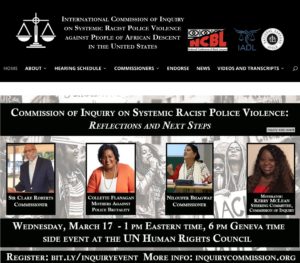

International Commission of Inquiry on Systemic Racist Police Violence in the US
As issues of violent policing nag at the American public’s consciousness, a new report finds the US guilty of crimes against humanity and other violations of international law. On April 27, the International Commission of Inquiry on Systemic Racist Police Violence in the US Released its final Report on Racist Police Violence in the US. The report pulls together weeks of live hearings chronicling cases of people killed by police with African descent. The report also contains recommendations addressed to national and international policy makers.
The International Commission of Inquiry was organized by the National Conference of Black Lawyers, the International Association of Democratic Lawyers, and the National Lawyers Guild. A distinguished panel of international legal experts from eleven countries served as Commissioners. The full 188-page document is available at the Commission’s website as are videos and transcripts from the live hearings in 44 cases.
Guest – Marjorie Cohn, professor emerita at Thomas Jefferson School of Law where she taught from 1991-2016, and a former president of the National Lawyers Guild. She lectures, writes, and provides commentary for local, regional, national and international media outlets. Professor Cohn has served as a news consultant for CBS News and a legal analyst for Court TV, and a legal and political commentator on the BBC, CNN, NPR, and other major stations.

Civil Liberties, Habeas Corpus, Human Rights, Surveillance, Truth to Power
Podcast: Play in new window | Download
- Attorney Jim Lafferty Commentary: 2021 Cold War
—-
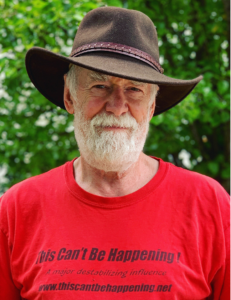

Journalist Put On FBI Terrorist Watch List Starts Class Action Case
Philadelphia-based journalist Dave Lindorff learned in spring 2019 that he was on the FBI’s Terrorist Watch List, used to require special searches of international fliers from and to the US. The list is readily accessible on computer to all domestic law enforcement agencies and most corporate security departments. Lindorff is about to bring a case against the US government over the list on First Amendment grounds.
Attorney Baruch Weiss, a partner at the major DC law firm, Arnold & Porter, is handling the case on a pro bono basis. Weiss was previously a deputy lead counsel to the Homeland Security Department shortly after it was created in the Bush/Cheney administration. He wants to add to the case any other plaintiffs who have First Amendment grounds for challenging their suspected inclusion on the list before filing the case in federal district court in Philadelphia later this spring, so that it will more likely have an impactful decision if the court finds the list to be unconstitutional.
Examples of First Amendment issues would be a journalist who has written stories that challenge one or another US government agency. If that was followed by a sudden inability to obtain a boarding pass online the day before the flight or being called to the gate on a return flight to the US undergoing a special inspection of person, carry-on luggage and electronics by special security personnel as happened twice to Lindorff. A First Amendment issue might involve being active in a human-rights or antiwar or other anti-establishment protest or advocacy organization and finding it suddenly difficult to obtain early boarding passes or being subjected to lengthy special inspections before being allowed to board a plane.
Guest – Dave Lindorff, contributor to The Nation, and writes for Salon, London Review of Books, and Counterpunch. He is founder of ThisCantBeHappening.net. Author of four books, Dave was a 1990s Hong Kong/China correspondent for Business Week.
—
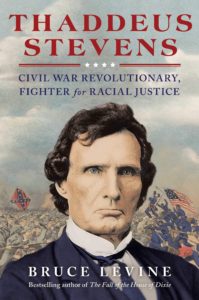
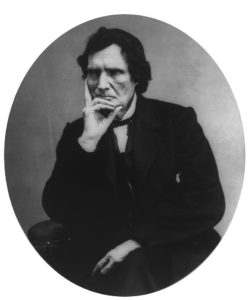
Stevens Thaddeus Stevens: Civil War Revolutionary, Fighter for Racial Justice by Bruce Levine
The 1861 to 1865 Civil War and the reconstruction period which followed it is widely considered to be the second American revolution. The slave-owning planter class in the south was defeated, at least for a while. Slave labor was abolished, but came back in other forms after reconstruction was crushed by 1877.
The promise of the declaration of independence that all men are equal before the law was fulfilled, at least for a while. Pennsylvania congressman Thaddeus Stevens was the foremost political leader in the struggle, even more than Abraham Lincoln. Stevens helped to bring about the abolition of slavery and was a leader in the effort during Reconstruct to make the United States a biracial democracy This wise and eloquent revolutionary has been vilified and rendered rendered obscure during most of the years since he died 153 years ago.
The distinguished historian Bruce Levine in his just published biography of Stevens “Thaddeus Stevens: Civil War Revolutionary, Fighter for Racial Justice” has secured a place for him alongside his contemporary John Brown in the pantheon of American revolutionary figures.
Guest – Bruce Levine, emeritus professor of history at the University Illinois and the author of four previous books on the Civil War era.

————————————-

























